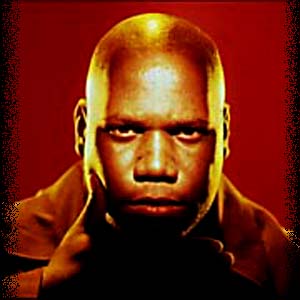
This text is about artist Hanna Preuss, because her project Soniferus and shine of sound, which is like some kind of 'sonic expo', like sound exhibition. Part of it is also sound installation in dark room, where you can lay down on comfortable and soft sofa and you left your self to deep sound vibrations, which frequencies are scrolling all your body, and your eyes are resting on rare light sensations in the room, which is sunken in deep black. These days still many of sound installations and experiments are produced, mostly they are investigating sound and noise, and there is much less the ones that are looking for relations between sound and human ad our psycho physical state of being. Hanna Preuss in her projects is digging in roots of that kind of sound.
Hanna Preuss as sound director devoted to sound in more than 120 movies in different languages. At age of four she started to play piano, she trained in Chopin music academy, Warsaw for sound directing in movie section and after as master of arts she became sound director in movie school in Lodge. "With sound we can change the expression on face on already shoot scene, time of scene duration, rhythm, emotion. Great sound in movies is the one that we don not notice it and we cant analyze it, it must be discreet and is forming viewers emotional field."
In last times scientists are giving a lot attention in exploring of elementary substances as water and sound, and their relations to human. Do you use those facts in yours work as well?

Those fact are scientific proven for long time period. It is completely clear that on wave can affect on other. If we are exposed to very strong sound wave, that is disturbing our brain wave, occur certain dis functions , that can be measured.
How sound affects on human psychophysical state? How frequencies of sound affect us?
Human vibrates the way his environment is vibrating. The beauty and danger of that is that those vibrations have no limits. Because of such amount of affect of sound on human body, it can completely harmonize or unharmonized, we give now days more and more attention. We are constantly in waves, every human body cell has a membrane that vibrates the same as membrane of microphone or speaker. It is pity that in this civilization we are exposed to huge amount of vibrations, which we do not hear, but we sense them and they are highly powerful affecting our psychophysical state. I'm deeply convinced, that the growth of civilization diseases, such as cancer, is related to with fact that we can not protect our uncontrolled thoughts and negative vibrations.
We live in sound and mind production, contaminated with negative frequencies and waves...
And all those can be measured. One of most famous machines to measure our mind processes is Lie detector. IF a man is attached to lie detector and affected of stress , are those stress waves written down. Those are our brain waves. The easiest way to measure sound is with decibels. But this is the sound we can hear. There exist a plenty of vibrations we can not hear, but body accept and experience them. Because we give no attention to it, and we don't sense this physical response we ignore it. Those vibrations can be effective or disturbing. In effective ones, we could say that slower is wave, deeper we can relax, more the body harmonizes and balances the function of both sides of brain, the faster the healing process in body are.
If negative impulses unharmonized us so certain positive impulses can harmonized us?
The body is not tuned as piano or violin. We tune up an instrument , so it sounds clear again and it is possible to tune up body too, that is exactly what Soniferus is doing, I call his doing tuning up a body. With sound we can affect our brain wave samples and we harmonize them.
We all know that certain sounds, music affect on us positive and other negative. there are known researches how different kind of music affect on human, for example Mozart, Bach and Beethoven or metal music. Personally I did those researches, because I saw emotional reactions of people on my music compositions so I started to think why and how. On international seminars there was high response of people that got opportunities to tune them selves- not only to hear, but to also physical experience sound of their name , sound of body and thought. About physical listening I started to think very early. Most important is that that we don't focus on sound with our ears, but we experience and listen it with whole our body. I have this experience from my childhood, i play an instruments since i was four, I finished music academy and I lived in isolated world of philharmony till I was nineteen. What is Phylharmony, a sanctuary of vibrations. When a man steps into this space, when he experience amazing concert, he do not think or analyze, but he lets his body by the flow of music. Anyone can swim in sound, only that sound needs to be pure.























